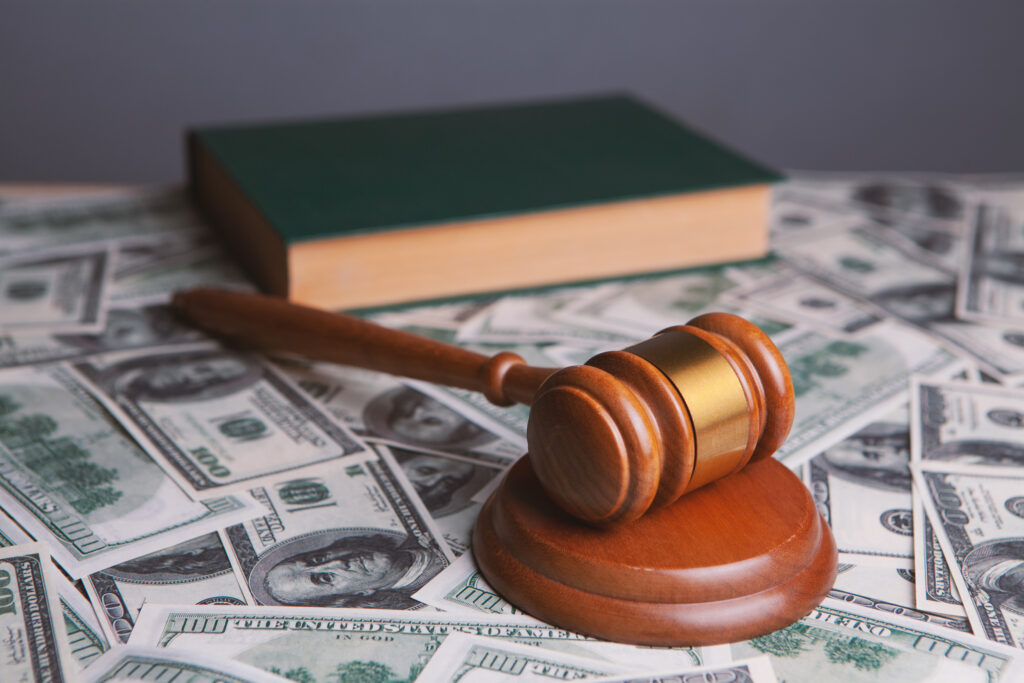
If you’ve been injured in an accident, you may wonder how you’re going to pay your bills and unexpected medical expenses when you can’t work. After an accident that was caused by the negligence or recklessness of another person, you may be entitled to compensation for these costs. In a personal injury lawsuit, “damages” is another term for compensation awarded to cover the losses you’ve suffered. Compensatory damages are meant to reimburse financial hardships, such as medical bills and lost wages. There’s another type of compensation, punitive damages, that may also be awarded as a way to punish the responsible party and deter similar behavior in the future.
In this blog, the personal injury attorneys at Lerner and Rowe explain the types of damages available in a personal injury lawsuit and answer some FAQs.
Types of Damages in a Personal Injury Lawsuit
Besides punitive damages, personal injury claims typically involve two main types of compensation: economic and non-economic damages.
Economic damages, or special damages, provide direct financial compensation for measurable losses caused by the accident. These include:
- Medical expenses
- Lost wages and loss of future earnings if the injury affects long-term employment
- Property damage to cover repair or replacement costs for vehicles or other belongings
Non-economic damages, or general damages, compensate for intangible losses that do not have a set financial value but significantly impact the victim’s quality of life. These may include:
- Pain and suffering
- Loss of consortium
- Loss of enjoyment of life due to life-altering disability or lifestyle changes
- Wrongful death benefits, which can have both elements of economic and non-economic damages, such as funeral costs and emotional suffering
Seeking economic and non-economic damages may recover compensation for losses directly related to your injuries. Depending on the circumstances of your accident, you may be entitled to recover additional compensation by seeking punitive damages. Your lawyer will use evidence in your case to determine the types of damages you can seek and build a strong case to support your claim.
What Are Punitive Damages?
This is a unique category of compensation awarded in personal injury lawsuits to punish the at-fault party for extreme negligence, reckless behavior, or intentional misconduct. Unlike economic and non-economic damages, which compensate the victim for losses, these serve as a deterrent to prevent similar misconduct in the future.
Courts may grant these damages in cases where the responsible party’s actions were particularly egregious or showed a blatant disregard for safety. These damages are only awarded in about 5% of verdicts. However, it’s still important not to rule them out until all evidence has been collected and assessed.
Examples of personal injury lawsuits that can result in punitive damages include:
- Drunk driving accidents
- Medical malpractice
- Product liability
- Nursing home abuse
- Intentional harm or assault, such as workplace violence
- Cyberbullying
Some notable case examples that resulted in punitive damages include:
Robinson v. Reynolds
In one extreme case, the Robinson family sued RJ Reynolds, a major tobacco company, for the death of a family member. The court awarded them $16.9 million in compensatory damages and an astonishing $23.6 billion in punitive damages to punish the company for its deceptive practices regarding the dangers of smoking.
Chiara v. Dernago
A more typical personal injury case involved Chiara v. Dernago, where a driver was rear-ended by a drunk driver, suffering severe neck injuries. The defendant, who was found to have twice the legal blood alcohol content, was deemed to have acted recklessly. As a result, the plaintiff was awarded $70,000 in punitive damages on top of compensatory damages.
Punitive Damages FAQs
When are these damages awarded?
Punitive damages are awarded when the defendant’s actions go beyond negligence and involve recklessness, fraud, or intentional harm. The court must determine that the conduct was especially harmful or egregious.
Is there a limit?
There are limits in some states, like Nevada. The amount of damages awarded cannot exceed ten times the amount of compensatory damages. It is important to remember that punitive damages can only be awarded if compensatory damages have already been won.
Do all personal injury cases result in these damages?
No, punitive damages are only awarded in cases where the defendant’s actions were grossly negligent or intentional. A skilled personal injury lawyer can assess whether your case qualifies.
Get the Compensation You Deserve After an Injury
If you’ve been injured due to someone else’s negligence or reckless behavior, a personal injury lawyer from Lerner and Rowe will review the evidence related to your case and calculate the amounts and types of damages you are entitled to. Unfortunately, insurance companies often try to minimize payouts, offering low settlements or denying claims altogether in an attempt to protect their bottom line. Without experienced legal representation, you may receive far less than what you’re truly owed.
We will aggressively negotiate with insurance companies to ensure they do not take advantage of you and fight to recover the maximum compensation for your injuries.
At Lerner and Rowe, our superior client assistance begins with a completely free initial consultation. We take the time to build a relationship with you, ensuring we understand the best way to approach your case.
The most valuable service we offer does not have a dollar value–we value all of our clients and dedicate ourselves to help carry the emotional burden of your personal injury case while you focus on recovery.
We provide 24/7 support and have secured billions in settlements total for clients nationwide. With our “no fee promise,” you won’t pay a dime unless we successfully win your case.
Reach out to a personal injury lawyer by calling (844) 977-1900. You can also fill out an online form, or simply type your message into the LiveChat box on your screen.



